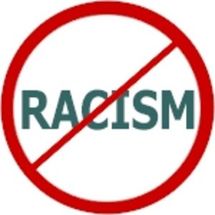
Negotiators in Geneva said Friday that Western and most Muslim states had agreed on a declaration for the five-day Durban Review Conference that ironed out the most controversial issues relating to religious discrimination, Israel and the Middle East.
The United States, along with Israel, walked out of the landmark World Conference on Racism in Durban, South Africa in 2001 after a row with some Muslim states about Israel's treatment of the Palestinians and anti-Semitism.
US doubts have persisted through preparations in recent months for the Durban Review Conference in Geneva, which is meant to take stock of international progress in fighting against racism and xenophobia since 2001.
The anti-racism conference's success is also thrown in doubt after Iranian President Mahmoud Ahmadinejad announced he would attend, sparking renewed fears the meeting could end in acrimony like the original anti-racism conference in Durban in 2001.
Ahmadinejad, who has stirred outrage by repeatedly calling the Holocaust a "myth" and with anti-Israel comments, is the only prominent head of state so far scheduled to attend the Geneva conference.
After Saturday's agreement on the meeting's final text, European diplomats also said they were considering whether to participate in the conference, according to the French foreign ministry.
Foreign ministers from Britain, the Czech Republic, France, Germany and the Netherlands had a joint telephone discussion, and would talk again on Sunday, a French diplomat said.
Wood said that while "we applaud the progress" made on the new conference document, which he said is "significantly improved" compared to prior versions, it falls short of easing US concerns.
"The text still contains language that reaffirms in toto the Durban Declaration and Programme of Action (DDPA) from 2001, which the United States has long said it is unable to support.
"Its inclusion in the review conference document has the same effect as inserting that original text into the current document and re-adopting it."
Wood said the DDPA singles out the Middle East conflict "and prejudges key issues that can only be resolved in negotiations between the Israelis and Palestinians."
He also said the United States has "serious concerns with relatively new additions to the text regarding 'incitement,' that run counter to the US commitment to unfettered free speech."
The spokesman thanked the delegations - including Russia, as chair - and UN officials who worked to improve the review conference, but regretted the United States would not attend the Geneva conference.
"The United States remains fully committed to upholding the human rights of all individuals and to fighting racial discrimination of every form in every context.
"We will continue to work assiduously in all United Nations fora and with all nations to combat bigotry and end discrimination," Wood added.
---------------------------------------------------------------------------------------------------------------
The United States, along with Israel, walked out of the landmark World Conference on Racism in Durban, South Africa in 2001 after a row with some Muslim states about Israel's treatment of the Palestinians and anti-Semitism.
US doubts have persisted through preparations in recent months for the Durban Review Conference in Geneva, which is meant to take stock of international progress in fighting against racism and xenophobia since 2001.
The anti-racism conference's success is also thrown in doubt after Iranian President Mahmoud Ahmadinejad announced he would attend, sparking renewed fears the meeting could end in acrimony like the original anti-racism conference in Durban in 2001.
Ahmadinejad, who has stirred outrage by repeatedly calling the Holocaust a "myth" and with anti-Israel comments, is the only prominent head of state so far scheduled to attend the Geneva conference.
After Saturday's agreement on the meeting's final text, European diplomats also said they were considering whether to participate in the conference, according to the French foreign ministry.
Foreign ministers from Britain, the Czech Republic, France, Germany and the Netherlands had a joint telephone discussion, and would talk again on Sunday, a French diplomat said.
Wood said that while "we applaud the progress" made on the new conference document, which he said is "significantly improved" compared to prior versions, it falls short of easing US concerns.
"The text still contains language that reaffirms in toto the Durban Declaration and Programme of Action (DDPA) from 2001, which the United States has long said it is unable to support.
"Its inclusion in the review conference document has the same effect as inserting that original text into the current document and re-adopting it."
Wood said the DDPA singles out the Middle East conflict "and prejudges key issues that can only be resolved in negotiations between the Israelis and Palestinians."
He also said the United States has "serious concerns with relatively new additions to the text regarding 'incitement,' that run counter to the US commitment to unfettered free speech."
The spokesman thanked the delegations - including Russia, as chair - and UN officials who worked to improve the review conference, but regretted the United States would not attend the Geneva conference.
"The United States remains fully committed to upholding the human rights of all individuals and to fighting racial discrimination of every form in every context.
"We will continue to work assiduously in all United Nations fora and with all nations to combat bigotry and end discrimination," Wood added.
---------------------------------------------------------------------------------------------------------------









 Home
Home Politics
Politics









